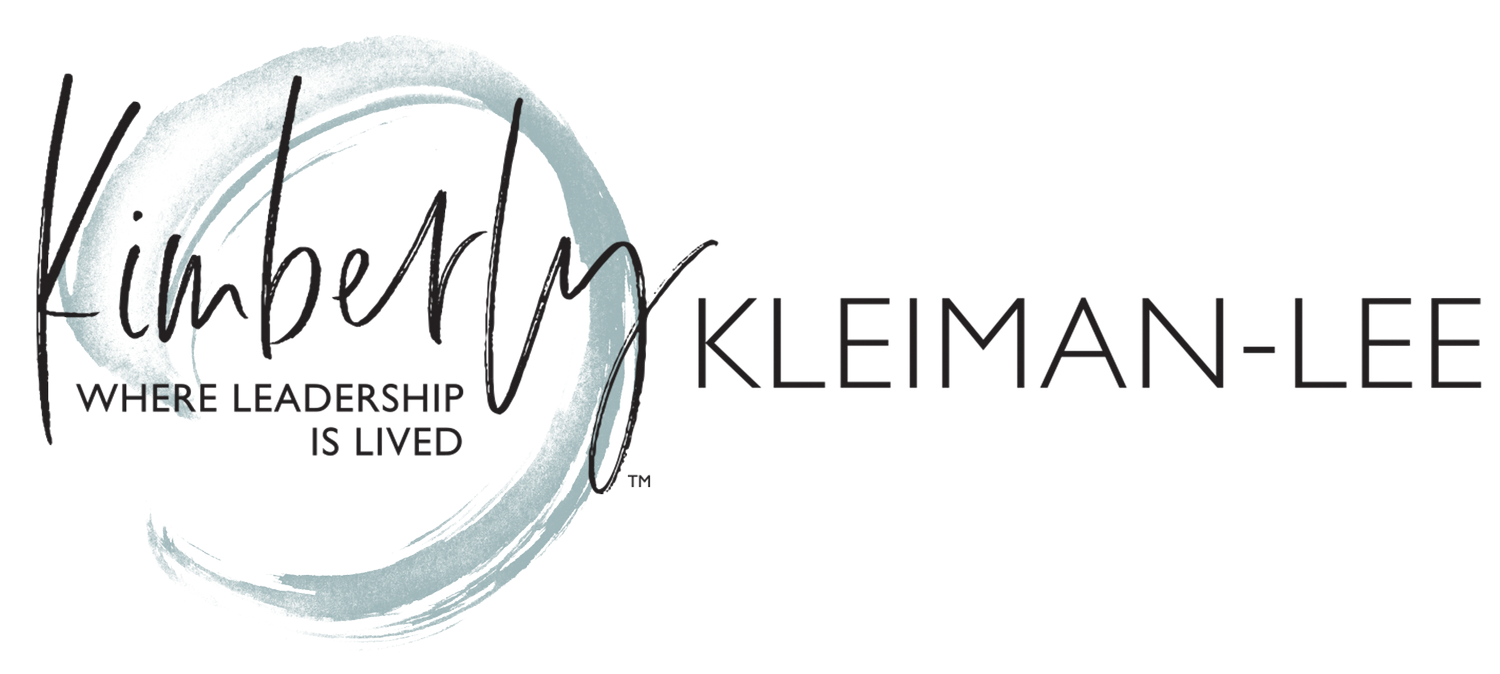Finding Your Voice and Power in a New Role
Helen recently landed a sweet promotion. This position will leverage her creativity, strategic headset, and skills at navigating complicated and thorny situations. While preparing to move two floors up, Helen promised herself that she wouldn’t bring everything with her; specifically her tendency to hold back and play small. This promotion came on the heels of a massive project win, but Helen knows that the clock has reset and she will need to prove that she can play at this new level with talented peers. Her long-held fears of being viewed as “too pushy” or “too aggressive” have overruled most attempts at voicing her opinion. Helen has a hunch that this insecurity took root in a household where children were told to be seen and not heard (especially if you were a girl). No naïveté here…she knows there are still discrepancies around gender in the workplace. This, however, is about her ability to share her ideas, demonstrate her talent, and influence her colleagues. And, if said-discrepancy should arise, she wants to have the skill and will to advocate for herself. She’s ready to achieve at the next level, but she’s got some work to do. She needs to find her voice, her volume, and more words.
Helen prefers to be a “doer” not a “talker” The logic? … Well, if she just puts her head down and executes, the promo-fairies will recognize the great work she does in that tiny cubicle and slip a “Yay, YOU!” message under her keyboard. It’s true that being a diligent “doer” got her this promotion, but Helen knows that this is a stretch role for her. Quite literally, her presence is being requested. Her #1 fan, and now former Manager, took a chance and advocated this new role for her even though “speak more”, “contribute proactively to meetings”, and “offer to present on behalf of the team” statements have been in the “Needs Development” column of her past performance reviews for years. Remembering the promise she made to herself, Helen is determined to never say nothing again.
Helen was offered a host of unhelpful advice in her last position. One colleague suggested that she toss a pencil into the center of the table to get everyone’s attention and then opportunistically share a brilliant thought. Another, recommended the ol’ clear-your-throat-loudly technique. Another well-meaning colleague told her to bide her time suggesting that the loudest, most verbose colleagues were “getting up there in age.” Talk about giving away your power! Helen hopes there is a middle ground between overcompensating with obnoxious gimmicks and stifling yourself into silence.
Despite a plethora of questionable advice, Helen was able to secure a few gems from a well-respected colleague. He’d noticed her morphing into a lesser version of herself in larger settings. He even saw her being talked over and interrupted. He went so far as to ask if Helen had a twin because her behavior was so unfamiliar from the confident woman he’d worked with one-on-one. He guided and gifted her with professional tips that are consistent with who Helen strives to be in her workplace:
Prep Your Contribution:
Review meeting agendas and become familiar with the topics to be discussed.
Prepare your points in advance and strive to express them concisely. Jot down 3-5 thoughts for each topic to which you want to contribute and bring your notes to the meeting. By being well-prepared and to the point, you reduce the likelihood of being interrupted and make it easier for others to engage with your ideas.
Sit across from or next to the leader of the meeting. Another trick is to sit near the screen being displayed so that eyes are in your direction.
Don’t underestimate the power of non-verbal cues. Maintain eye contact or raise your hand to signal that you are still speaking to pause the interruption.
Aim to contribute once every 20 minutes. Is this a random goal? Yes! This goal is to help you develop engagement skills that might not be as natural for you. You aren’t going to speak just to hear yourself speak. Contributions take many forms: share a new idea, encourage someone else to speak, identify a risk, agree with a colleague’s idea, congratulate a person for a job well done, or ask a question. Engage!
Assert Yourself
If interrupted:
Approach the conversation calmly and constructively. Express your concerns and seek a mutually agreeable solution. Politely but firmly address the interruption as soon as it happens. E.g., "I’d like to finish my point," or "You are welcome to speak when I’m done."If dismissed or ignored:
”I’m not sure my idea was understood…let me explain it a different way,” or “Before we move on to the next thought, I’d welcome feedback on the one I just offered.”If interruptions or dismissals are caused by a specific person:
”Sue, I’m not sure you realize you’re doing this, but it seems that when I speak you tend to talk over me or change the direction of the meeting with a new idea,” or “Guillaume, I would welcome your feedback on my contributions in today’s meeting. I sense that you and I share a difficulty in getting sufficient air time.”If finding it difficult to enter high energy conversations:
”I have an idea that could work,” or “One second, let’s circle back to an earlier point to ensure…” or “Let’s ensure all ideas are heard on this critical topic” or “Before we move on…”If needing to disagree:
”I see your point, but in this case, my recommendation is lower risk because a, b, and c,” or “Let’s walk your idea out a few steps to see how it could work,” or “I can appreciate that, but we still haven’t addressed the concerns of x, y, and z. Let’s ensure we resolve those before choosing a path forward.” Always, lead with data and examples to strengthen your point and give merit to your arguments.When you finally have the floor, your goal is not to out word count peers, but to build skills asserting your opinions in a productive way.
Secure an Advocate
Natural introverts, those whose primary language is not the one being spoken in the meeting, or those who process information internally before they speak sometimes find it a challenge to contribute to a fast moving dialogue. By the time they organize what they’d like to say, the conversation has moved on. If this is you:
Ask your manager or the meeting leader to call on you more during the meeting. “Dave, I am naturally quieter. I like to take in the information being shared and come to a conclusion. Fighting for air time is not my style. I am working on this, and would welcome a question being sent my way on occasion.” This invitation will pause the energy in the room and give you a chance to be heard.
Ask to present a topic or lead a discussion. It is sometimes easier to “host” a conversation than to participate in one. This slightly elevated power-position might help others to more easily read your quieter cues.
The Final Word:
There is an expectation that employees contribute constructively to team meetings, planning sessions, and problem solving dialogues. Be prepared, acknowledge others' perspectives, and assert your opinion with data and experience. Any worries about being perceived as “bossy” or “too aggressive” will be replaced with an affirmed perception of confidence, inclusiveness, and credibility by those throughout the office.
The Final Final Word:
If you are a concerned “Helen” who worries about being “too bossy” or “aggressive”, ask two people you trust to provide data about your style and how you consistently come across to others. If no sound data exists…this is not your monkey and not your circus. This is bias.
“Voice is integral in day-to-day business, whether it is a business meeting, a sales pitch, a speech to your staff – being able to use your voice in business means that you are more likely to have an impact in all settings of work life. It enables you to motivate (or demotivate), to inspire (or bore), and to convey purpose. It is crucial to the role of a leader.”
Claire Ebrey, director, On the Level
“There’s a sweet spot for assertiveness. If you’re below the range, you’re not going to get your way. If you’re above it, you’re not getting along with others.”
Daniel Ames, professor, Columbia Business School; author, Pushing Up to a Point: Assertiveness and Effectiveness in Leadership and Interpersonal Dynamics
Don’t stop now! Learn more from a few of our personal fav resources below:
Disclosure: The resources shared and listed by KKL & Co. are those that have been evaluated to be of high value to our leaders. We are proud affiliates for some of these resources, meaning if you click a link and make a purchase, we earn a nominal commission at no extra cost to you. Please don’t spend any money on these resources unless you believe they will help you become a better human.














